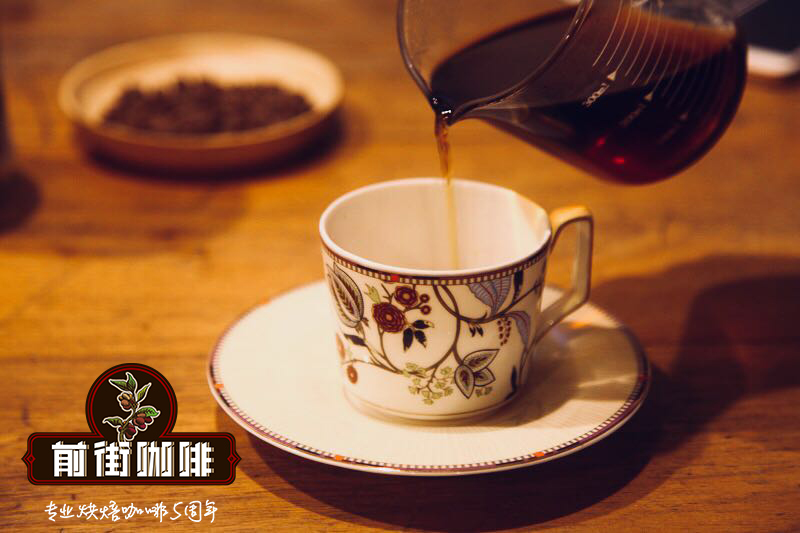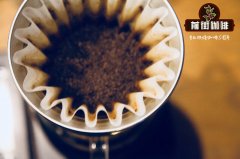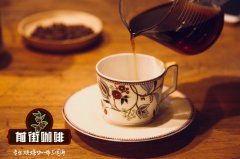The characteristics of East Timor Coffee, the largest producer of Organic Coffee in the World

Professional coffee knowledge exchange more coffee bean information please follow the coffee workshop (Wechat official account cafe_style)
How much is a coffee bean worth? The quality of coffee beans is certainly an important factor, but equally important is what you think of these coffee beans. And where to sell, market positioning, and so on, will affect the final value of that cup of coffee.
Most of the coffee in East Timor is grown in small farms in an organic way, with a small quantity but good quality, high purity and spice flavor, suitable for a variety of different degrees of roasting, and is the best choice for blending. Coffee bean particles are too large, but the size and color are not symmetrical, full-bodied, with a little spice flavor, sweet and bitter taste in the middle, almost no acid, suitable for different degrees of baking, the taste is endless, very unique, mostly used in the blending of comprehensive coffee.
East Timor, which voted for independence from Indonesia in 2002, is an island between Australia and Sulawesi.
When the Portuguese ruled in the 18th century, they brought high-quality coffee varieties from South America and set up manors to match the unique geographical environment of East Timor. The cultivated Arabica Arabica bean is not inferior to the high-quality Java variety in appearance and taste.
The ideal planting sites for Arabica beans are located in the circular zone of the Tropic of Cancer (between 25 degrees above and below latitudes) and in the mountainous or frost-prone subtropics, within which East Timor falls. The main coffee farmers in East Timor are mostly small-scale farms, which are grown organically, with low overall yield but high quality.
East Timor has been a producer of high-quality coffee in Europe since the 18th century, and the war in the late 20th century made the coffee in East Timor gradually lose its stage.
At a Nobel Prize banquet held in Norway in 2001, the organizers adopted the proposal to serve East Timorese coffee to the guests. East Timorese coffee is back on the world stage.
Alpine wild coffee
Mount Tatamailau, the highest peak in East Timor, at 2963 meters above sea level, is also the highest peak in all former Portuguese colonial regions.
In 1999, the World Association of Coffee producing countries (ACPC) announced that East Timor is the largest producer of organic coffee in the world.
After the independence of East Timor in 2002, the Government vigorously promoted the cultivation of organic coffee and announced in the form of a decree that chemicals such as chemical fertilizers and pesticides were not allowed to be used.
East Timor alpine coffee bean species belong to Arabica, which is cultivated organically, insists on natural food without chemical fertilizers and herbicides, and absorbs nutrients contained in nature itself. the coffee grown is pollution-free, high-quality coffee.
Origin: East Timor East Timor
Variety: Arabica (G1) Alpine natural wild coffee beans
Manor: Mouchu Family Manor
Altitude: above 1800m
Treatment: washing
Baking degree: medium-deep baking
Cup test report
Dry fragrance: cool fragrance, flower and fruit fragrance, rich greasy feeling
Wet fragrance: sweet caramel, sweet cocoa, long-lasting nasal aroma
Palate: bright and long-lasting acidity, thick body, special flavor of cocoa and chocolate, mixed with unique sweet and sour berries, special sweet and sour aftertaste of fruit and even some Swiss lotus mint chocolate flavor.
Important Notice :
前街咖啡 FrontStreet Coffee has moved to new addredd:
FrontStreet Coffee Address: 315,Donghua East Road,GuangZhou
Tel:020 38364473
- Prev

Guatemala Oliente Sun Coffee hand how bitter, New Oriental hand Coffee Coffee
Professional coffee knowledge exchange more coffee bean information please follow the coffee workshop (Wechat official account cafe_style) the new production season of Guatemalan coffee Oliente, solarization Guatemala coffee production is rare, but also was selected by WBC finalists as competition beans different from ordinary water washing Guatemala with bitterness and mellow, sun-treated TA, taste more delicate and balanced, not astringent
- Next

The characteristics of East Timor Coffee, the largest producer of Organic Coffee in the World
Professional coffee knowledge exchange more coffee bean information Please follow the coffee workshop (Wechat official account cafe_style) how much is a coffee bean worth? The quality of coffee beans is certainly an important factor, but equally important is what you think of these coffee beans. And where to sell, market positioning, and so on, will affect the final value of that cup of coffee. East Emperor
Related
- Detailed explanation of Jadeite planting Land in Panamanian Jadeite Manor introduction to the grading system of Jadeite competitive bidding, Red bid, Green bid and Rose Summer
- Story of Coffee planting in Brenka region of Costa Rica Stonehenge Manor anaerobic heavy honey treatment of flavor mouth
- What's on the barrel of Blue Mountain Coffee beans?
- Can American coffee also pull flowers? How to use hot American style to pull out a good-looking pattern?
- Can you make a cold extract with coffee beans? What is the right proportion for cold-extracted coffee formula?
- Indonesian PWN Gold Mandrine Coffee Origin Features Flavor How to Chong? Mandolin coffee is American.
- A brief introduction to the flavor characteristics of Brazilian yellow bourbon coffee beans
- What is the effect of different water quality on the flavor of cold-extracted coffee? What kind of water is best for brewing coffee?
- Why do you think of Rose Summer whenever you mention Panamanian coffee?
- Introduction to the characteristics of authentic blue mountain coffee bean producing areas? What is the CIB Coffee Authority in Jamaica?

